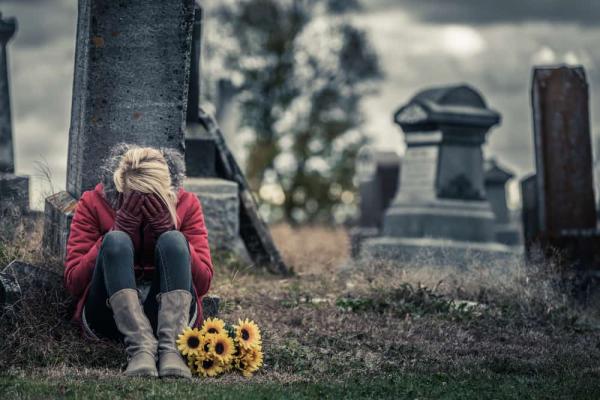
Change is inevitable. We can't avoid change as much as we may like to. Kids grow older, the job market shifts, relationships drift apart, physical health breaks down. What worked for you yesterday may not yield the same successes today. Such is life. So, what are you to do?
Accept change means loss
The first step is to face the fact that change means loss.
Think about it. When a friend moves across the country, part of you is missing. Or, let's say, you lose your job. The part of you that came into existence because of your job is gone. Maybe you're going through a divorce at the moment. That relationship, the love you had, that story ... has ended.
Every change is like a death. Obviously, every time you change you aren't physically dying. But a part of you, a piece of your life, has died.
Therefore, you're faced with the choice between two alternatives. You could wallow in grief over what you have lost, wishing what changed had never changed. Or, you could adapt and keep moving forward.
But, like I said, this latter option is a choice. It isn't something you fall into or something that just happens to you. You make the choice to move forward. You make the choice to reorient and restructure your life after the change/loss. This is important to do because the life you once had is gone. Trust me; I've seen far too many people pining and wishing for a life they no longer have. They are, effectively, living in the past.
So, what's the lesson that must be learned? How does someone move forward after change? How do you adapt?
Learn how to grieve healthily
An indispensable element of adaptation is having a healthy habit of grieving. But isn't grief sad? Isn't grief something that I should avoid? By no means! Grief is not only an indisputable reality of life but also good and healthy. There is such a thing as "good grief" (as Charlie Brown would say).
But sadly, far too many people have no concept of what healthy grief looks like. People think grief is feeling sad and eventually not feeling sad anymore. This couldn't be further from the truth. There are actually four tasks of healthy grief, as outlined in "Grief Counseling and Grief Therapy: A Handbook for the Mental Health Professional."
Task 1: Accept the reality of the loss
You must confront your own denial that part of your life is gone. Your life has changed, but that's okay. You can't move until you face reality.
Task 2: Experience the pain of grief
For whatever reason, we are afraid to feel in our culture. We take pills, distract ourselves with entertainment and generally avoid discomfort, but this isn't helping us. This is compounding our pain. Experience the pain of what you have lost. It is the only way for you to actualize the reality of what has happened.
Task 3: Adjust to an environment with the "deceased" missing
Life is not the same now that your marriage has ended, your friend has moved away or your work has laid you off. You must find a new normal. Don't try to recreate what you had. Take what's in front of you and work with that.
Task 4: Find an enduring connection with the "deceased" while embarking on a new life
Even though that part of you is gone and irretrievable as a result of the change, it is still part of who you are. Memories are the foundation of your identity. Cherish what you have lost while moving forward.
Notice these aren't stages implying that grief is something that you are carried through. Each task requires effort, work and engagement. You must be the driver in your grieving process. Engaging in the hard work of these four tasks allows you to move forward.
Understand moving forward isn't easy
Accepting that life is constantly changing and with those changes comes loss, allows you to process grief in a healthy way. And, as I said above, healthy grief empowers you to move forward, which is a key piece in adapting. Then, and only then, can you adjust to a new normal and continue with the stuff of life.
But too many want the moving-forward part without the hard work. That kind of "cheap" moving forward isn't really moving forward at all. It's ignoring and avoiding, which actually accomplishes the opposite of moving forward. It keeps you stuck.
"Cheap" moving forward cements you where you are. Physically you are getting older, your kids are growing up and the place you live is changing; but inside, you are still in that same place.
Moving forward isn't cheap, it will cost you something. You will have to face painful things. You'll have to accept what is no more. You will have to engage in the four tasks of grief. But, the payoff is the ability to move forward. So, you have to ask yourself: is the cost of moving forward worth it? I would argue it is.
Healthy grieving enriches you as a person. It's not easy; that's for sure. But what in life is easy? The things people cherish most are typically things that bear the greatest cost. Is the cost of healthy grieving so scary that you are willing to lose out on the benefit of moving forward?

